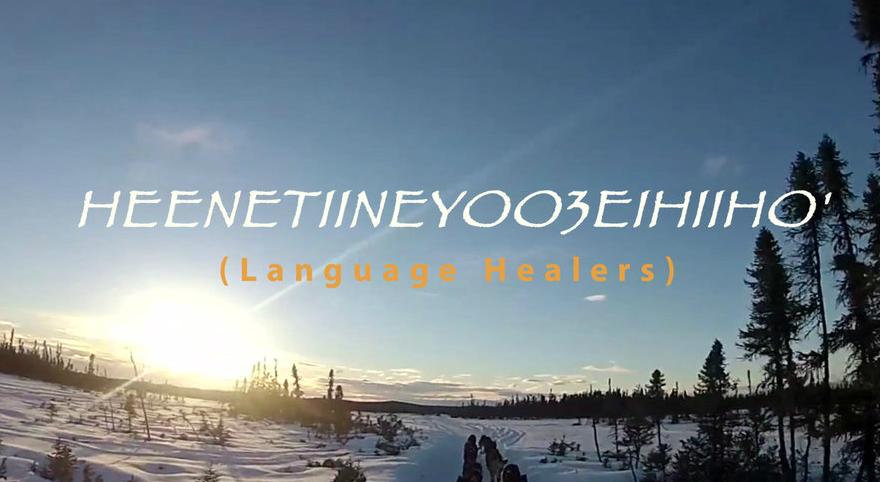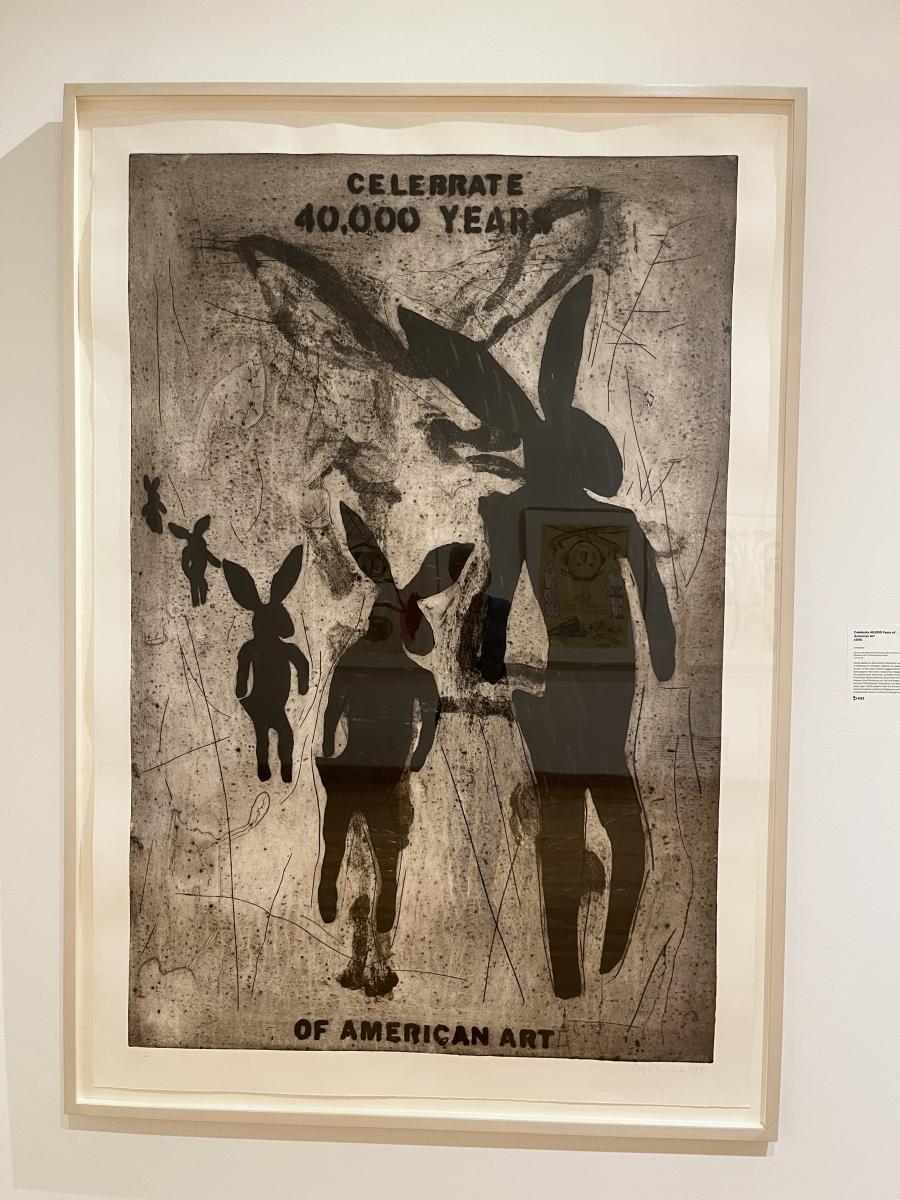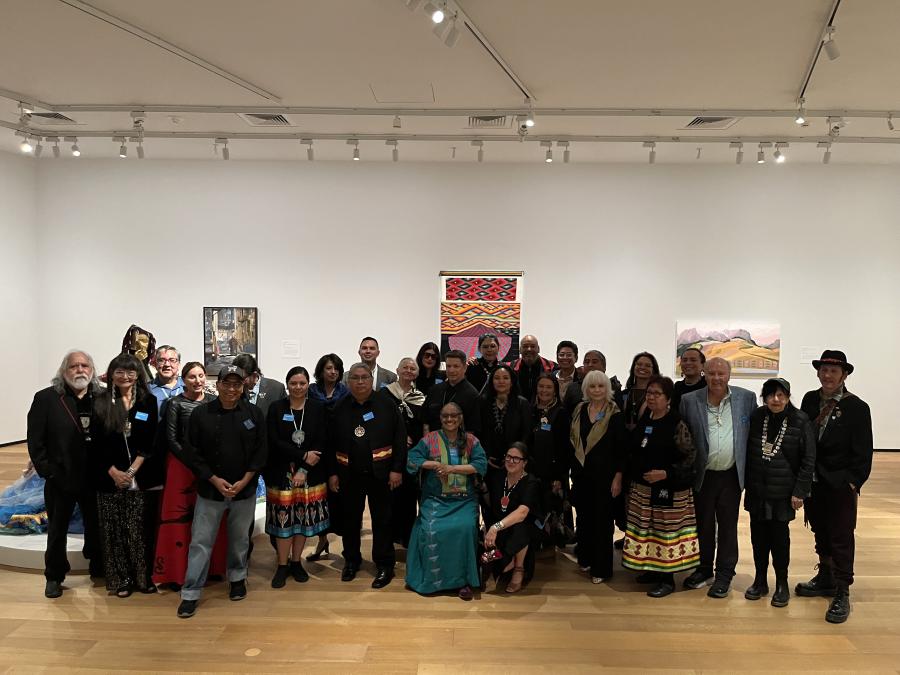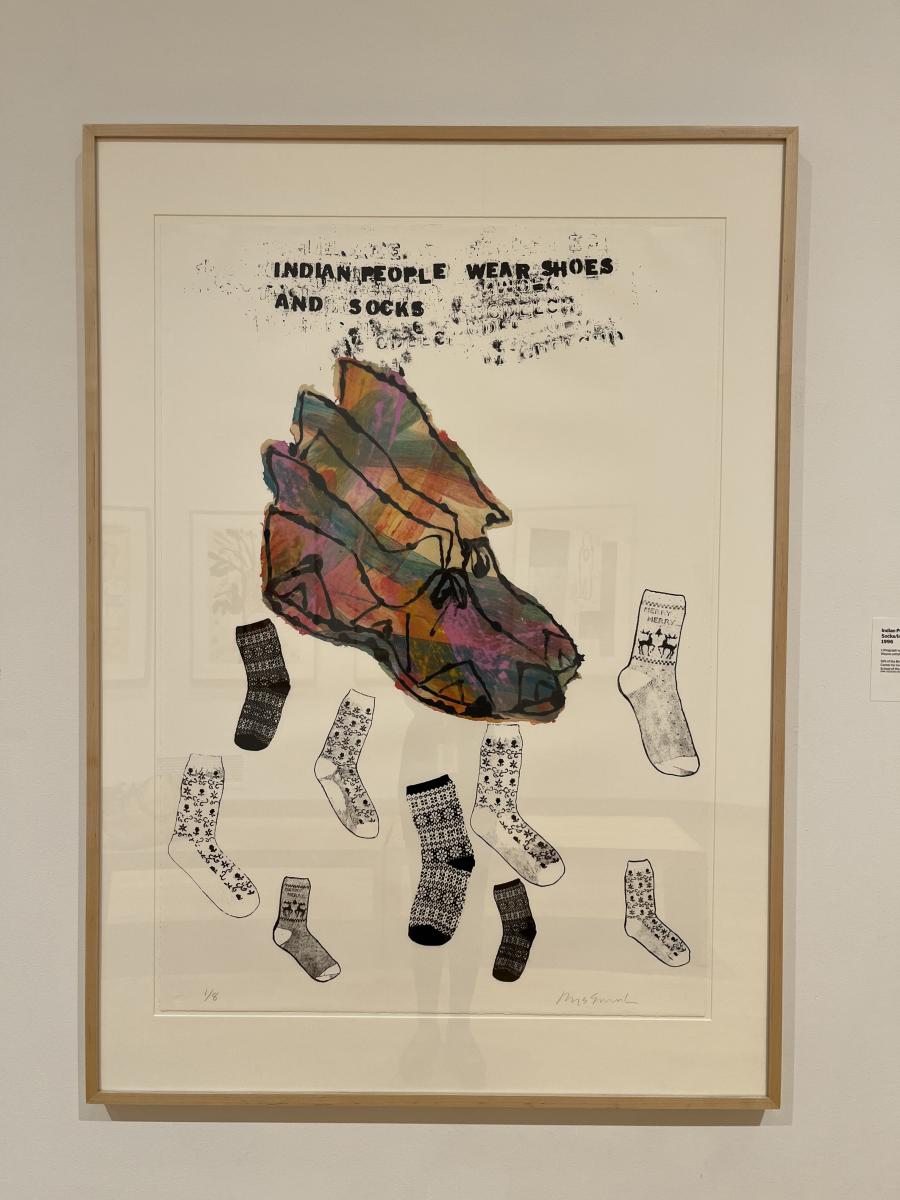
By Brian McDermott
I recently listened to a radio call in program about the subject of language loss where the host began the show by saying to his Native guest and listeners: “…if you speak an endangered language, we want to ask you in this program, what would you lose if that language were to disappear?” What I have begun to realize is that to ask a speaker of an endangered language what is lost when his or her language disappears is often culturally naive and sometimes houses an unconscious prejudice. I understand why the interviewer asked the question. He seemed to be genuinely trying to discern some of the differences that exist within other cultures and languages. However, if we were to flip the question around and ask the interviewer what he would lose if the English language disappeared, the questioner might begin to understand the bias inherent in his question—since much of what one knows, thinks, feels, talks about, and believes, is mediated by and made possible through language. Yet for a portion of the interview, the host continued asking for examples to prove that something different or unique exists within minority languages. In ending the show, the interviewer concluded: “Well, you really made a terrific argument over the last 15 minutes for what can be lost when the language disappears. And you've brought me around on it and then so did our callers.” It ultimately seemed problematic to me not only that the host was judging whether something valuable is lost when endangered languages disappear—but that the standard for determining that value or uniqueness was how well the alternative worldviews and meanings could be expressed in English.
In Science, Colonialism and Indigenous Peoples, Laurelyn Whitt makes the following statement when discussing how Western science ignores Indigenous knowledge systems: “Part of what facilitates this closure to alternative epistemologies within the dominant knowledge system is a tendency toward a reductionist scientism – the conviction that science is the best, if not the only, way of knowing, ‘that we can no longer understand science as one form of possible knowledge but rather must identify knowledge with science.’” One might also argue that just as science becomes the only way of knowing in a dominant Western knowledge system, English is the only means of speaking/thinking/being in a reductionist US language system. In other words, advocates of an English-centric culture have their own bias or worldview that sees the way they think/speak/act as the norm—much like the way followers of certain religions may disregard the beliefs held by those of other faiths.
When I first began making Heenetiineyoo3eihiiho' (Language Healers), a film on the subject of Native language loss and revitalization, some of the people I know said things like: “When languages disappear, that’s natural; it’s survival of the fittest” and “If kids don’t want to speak their languages, they won’t and so the languages disappear, it’s that simple” or even, “What do Native Americans want? To separate off from the rest of America?” I couldn’t help but wonder if there was a deeper issue operating beneath these responses to the topic of Native language revitalization. I began to feel that these dismissive reactions to the topic represented a larger, unconscious bias—a dominant language-fueled worldview that fails to acknowledge not only the past role of the United States in genocide/ethnocide, but also the fact that minority languages and cultures are distinct, essential to tribal identity, inherently worthy of existing, and need to be protected and saved here in the United States—where they have existed all along and prior to the presence of English.
Through referencing a few of the people interviewed in my upcoming film, it is my hope to create a space, not for proof that Native languages are unique, but for an understanding of the importance and meaning of linguistic pluralism. For through reflection upon my own relationship to and experience with language, I take it as a given that it is not necessary to prove that something inherently valuable is lost when any language disappears. Why would the English language be so vital for English speakers but other languages not be as vital for their respective speakers? It is only from the perspective of sameness that difference can be thought of as in need of justification. It will also be fruitful to hear some of the reasons why language loss among Native Peoples in the US has been anything but a “natural phenomenon” or a “choice” as I have often heard it expressed.
One of the first people I interviewed for the film was Conrad Fisher, a Tribal Historic Preservation Officer for the Northern Cheyenne Tribe. In response to one of my questions about the importance of revitalizing Native languages, Conrad clarified the whole issue this way:
The Indigenous language doesn’t necessarily equal the English language because it is a traditional, cultural view of your world that has been passed down from generation to generation. And so when you talk the language, you’re talking on behalf of your ancestors from a thousand, two thousand years ago. You’re looking at it through an Indigenous lens of generations of people. And it’s hard to imagine losing that. So if you don’t have that, if you don’t have the language, then who are you?
To assume that language is simply a utilitarian tool for communication and that all languages are the same misses this deeper point that one’s culture, identity, and unique worldview are all housed within and transmitted through the language.
Karen Washinawatok, the Director of the Menominee Language and Culture Commission also reinforced this point during our interview when she said: “That's why knowing our language is so important, because it teaches us who we are; it's not just a set of words. It's about our history, it's about our heritage, it's about our way of life that our ancestors have fought and died for." Karen also stressed the spiritual significance of the language when she added: “And most importantly they [the elders] said you have to have that spirit name—because when you make that journey over to the other side—when your earthly journey is completed—that Creator’s going to greet you by your spirit name and speak to you in your Native language and are you going to be able to understand? Will you know enough of your language to know what’s being spoken?”
When I visited Karen in 2012, the issue of fighting to maintain the connection between one’s present identity and one’s past heritage was especially close to home for her; her granddaughter Miranda had recently been punished (reprimanded in class and benched from a basketball game) for speaking a few words of the Menominee language at her Catholic school in Shawano, Wisconsin. The Menominee language is critically endangered, with only a handful of fluent speakers remaining. The day I met with Karen, the Washinawatok family sat down with me and explained that the incident at Miranda’s school had reminded them of the boarding school movement through which their ancestors were being punished and stigmatized for speaking their Native languages.
Dr. S. Neyooxet Greymorning, a professor of Anthropology and Native American Studies at the University of Montana (and also the inspiration for my film), summarized the boarding school movement and the effect it had and continues to have on Native languages when he told me that the government officials “would remove them [the children] and sometimes transport them hundreds of miles away to these boarding schools where they would remain for years—and sometimes grow up in these boarding schools. The goal, the single goal of these boarding schools was to alienate them from the culture, from the language, and then to basically reprogram them.” To further outline the malevolent and all-pervading nature of the boarding schools let me cite Dr. Richard Grounds, the Director of the Euchee Language Project in Sapulpa, Oklahoma when he informed me that government officials were “going into every tribe, going into every home, finding every kid; there was literally enough money to find everyone,” and that “the amount of money that went into destroying our languages was on the order of billions of dollars, in today’s dollars.”
As these comments show, language loss among Native Americans has not been the result of some impersonal natural process, nor of choice—but rather has been the direct consequence of a concerted effort within the US to destroy these languages and cultures—an effort still echoed in the lack of recognition and sensitivity for the past traumas and experiences of Native Peoples, through inadequate funding for Indigenous language schools, through English-only legislation which supports the false premise that linguistic diversity equals divisiveness, and through the common sentiment that if you live in the US then you must assimilate and be defined by some imagined, English-speaking norm.
As linguist, author and National Geographic fellow K. David Harrison told me when he was discussing reasons as to why younger generations of Native People are failing to speak their heritage languages: “Children who speak minority languages are given implicit and explicit messages through the school system, mass media, society-at-large, that devalues their heritage language and promotes the majority language. And so, they tend to very quickly internalize those values and come to feel that their heritage language is not as good, not as suitable for the modern world, maybe is backwards…I would say kids are coerced, made to feel embarrassed or ashamed of their languages.”
But even as tribes deal with the pain of historical traumas—as well as with more recent attempts at the suppression of their languages—a story of healing and the strength of tribal communities emerges.
In a country where 27 states have already passed English-only laws, it is important to know that many of the younger and older generations within the tribes fully understand the significance of language revitalization and are working hard to keep the languages alive. As Renée Grounds, the lead language instructor and youngest fluent speaker of the Euchee tribe explains: “Our generation is the last chance to bridge that gap and give the children an opportunity to speak our language, because if we don’t do it now, our first language speakers will pass away and our language will go with them.” These same points about acknowledging the urgency of the situation and the opportunity for youth to take a leading role were emphasized by Amber Greymorning, the daughter of language revitalizationist Dr. Greymorning, when she told me:
The language is dying. Our elders are dying and there’s no one to pick up the torch. So what is the point? Why struggle through it? I think that if people see that there are people out there making an effort and they’re trying and they’re still fighting, I think it will keep the spark alive in other people.
As Mike Williams Sr., chief of the Yupiit Nation and 15-time Iditarod dog-mushing inspiration explains, healing takes place through language transmission because it promotes community, tradition and identity:
I think what the elders did, they taught us our ways of life and surviving in a harsh environment…In a men’s house, that is where they spoke to the young in Yup’ik about how important it is to know who you are: the dances, the languages, keeping the languages intact so we can communicate. …Indigenous people in Alaska, our lives have changed so rapidly in 100 years. A lot of bad things happened: loss of our land, loss of our languages, loss of our culture. And so we’re trying to turn that around to make sure that we continue to have our identity, our way of life and our languages intact so bad things like suicides and the alcohol abuse can end.
Though the rate of suicide among Native Americans in certain areas of the US has been reported by the US federal government to be 9-19 times higher than the rate among other youth, research conducted in Canada by Hallett, Chandler and Lalonde concludes that Aboriginal youth who know their own Aboriginal languages are less likely to commit suicide, and that when at least half of a tribe “reported a conversational knowledge” of its own language, the suicide rate in that community drops to zero. These findings support what language revitalizationists like Dr. Greymorning and Dr. Grounds have been arguing for some time—that there is a direct correlation to be made between the health of a community and the health of the language within that community. As Dr. Grounds says:
Our heritage languages, our original languages are probably the most critical markers of the health of our communities in terms of our cultural well-being. And that relates to understanding who we are, that relates to understanding what our place is in the world, how we are to conduct ourselves; the special things that have been given to us by the Creator is all carried in the language. The fullness of that understanding comes with the language and the health of the language is probably the most critical marker of how our communities are doing.
And perhaps through considering this relationship of something abstract like language to something more concrete like health, one can begin to understand some of the implications of linguistic pluralism. Dr. Greymorning poses the following similar analogy for people who wonder why it is important to save Native languages: “I ask people, what do you do if somebody who is really loved becomes deathly ill? Do you do everything possible to heal them, you know, to try to find a way of getting that person’s health back in balance?”
It is clear that those working to revitalize languages within the Indigenous communities, those language healers, therefore consider languages to be more than simply means of communication: to them languages are unique, sacred, and alive; transmitted from person to person; carriers of worldviews, spirituality, and ancestral history; and indicators of the overall health of Native communities. It is also clear from the points above that Native languages have been actively suppressed and communities have been detrimentally affected; and yet, within this tragic situation, lies the key to restoring health. Tribal efforts to reclaim languages strengthen communities, reinforce identities, and bolster connections to unique ancestral worldviews and history—thus countering some of the effects of the traumas that have been inflicted upon Native communities. The good news is there are still people who are successfully fighting to revitalize Native languages within the United States. Dr. Greymorning continues to instruct teachers from over 100 different language communities in using Accelerated Second Language Acquisition (ALSA), his method for quickly revitalizing endangered languages, and he has been informed of many success stories—with certain tribes now moving beyond his expectations. Dr. Grounds reports that the Euchee Language Project in Sapulpa, Oklahoma has recently generated 10 new Euchee speakers—an amazing accomplishment considering there are only four fluent Euchee elders remaining. And there are dozens of other success stories not covered in my film.
As Tlingit carver, artist and traditional dancer Benjamin Schleifman told me when discussing the depth of what it means to be connected to one’s language:
Our two year old—when he came into this world—he came into a song that I composed for him almost entirely in Tlingit. And it was the most incredible experience for me. Because there I am singing a song that I made for him in the language of his ancestors, and he came out facing away from me, and when his torso was out and his arms were out, he actually spun around, looked at me and smiled—and I think it’s because, you know, he heard the language of his ancestors. So to me, it’s far more than just a language. It really is the culture. It’s our ancestry.
No one should be asking for proof that Native languages are intrinsically valuable or unique and that important meanings, connections, experiences, knowledge, beliefs, and feelings are lost whenever any language disappears. Yet, from an English-centric perspective it may be difficult to envision the possibility of the importance of other worldviews and the irreplaceable cultural intangibles that are housed within different languages—just as it may be difficult for those within one dominant scientific knowledge system to respect the wisdom, insights and advantages inherent within alternative ones. As suggested earlier, an analogy might be how followers of religious systems also sometimes fail to recognize and acknowledge the importance of other religions or of other “divisive” beliefs that happen to fall outside of their chosen belief system. But after listening for a few minutes to those who come knocking on the door to espouse the merits of the one faith they happen to follow, it is always interesting to note that ultimately the problems the adherent claims to exist are not in fact a result of multiple belief systems and of differing ways of being—but are instead arising from the preacher’s judgments of others and the insistence that there should only be one way to live.



